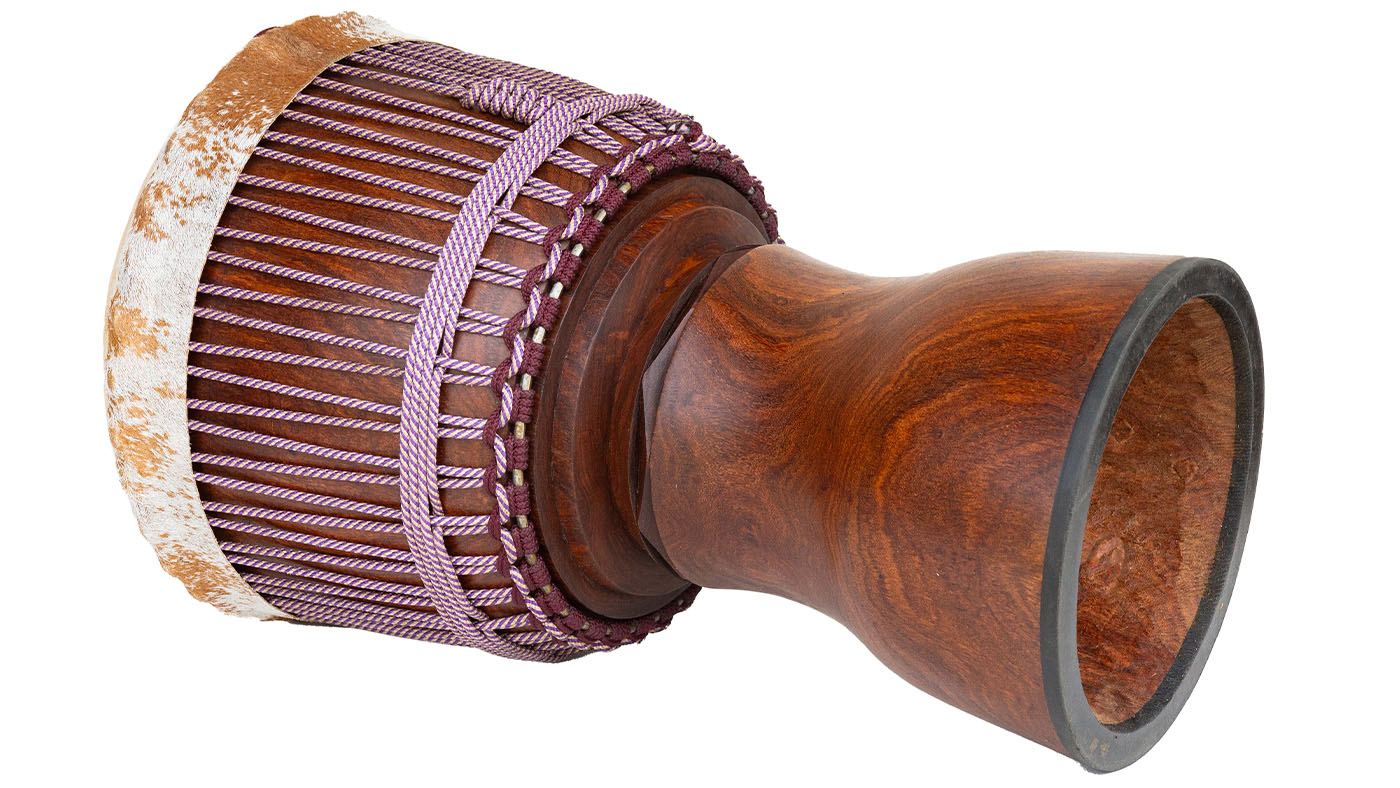Let’s talk about a reality that all drummers face: just like all good things, your goatskin or any animal skin on your drum is going to eventually give out. They pop. And sometimes seemingly for no reason. I have brought a brand new drum home fro a shop, put it into my house walked in the next room and BAM it’s popped!
Djembes no matter how well they are built, aren’t built to last forever, at least the skins are not. The shells might!
The more you play, the more likely it is that you’ll experience a skin popping or splitting open. And the more you tune it, the more knots you put in it the sooner it will pop. Because it is more tension.
Be careful when you tune yourself about how many diamonds *(knots) you put in at a time. I like to only put in 3-6 at a time, and then play the drum and let it sit before I put in more. Some people like to really crank them but it is risky business. Ask yourself, “do I really need this drum tuned this high”?! Or better yet, “am I feeling lucky”?
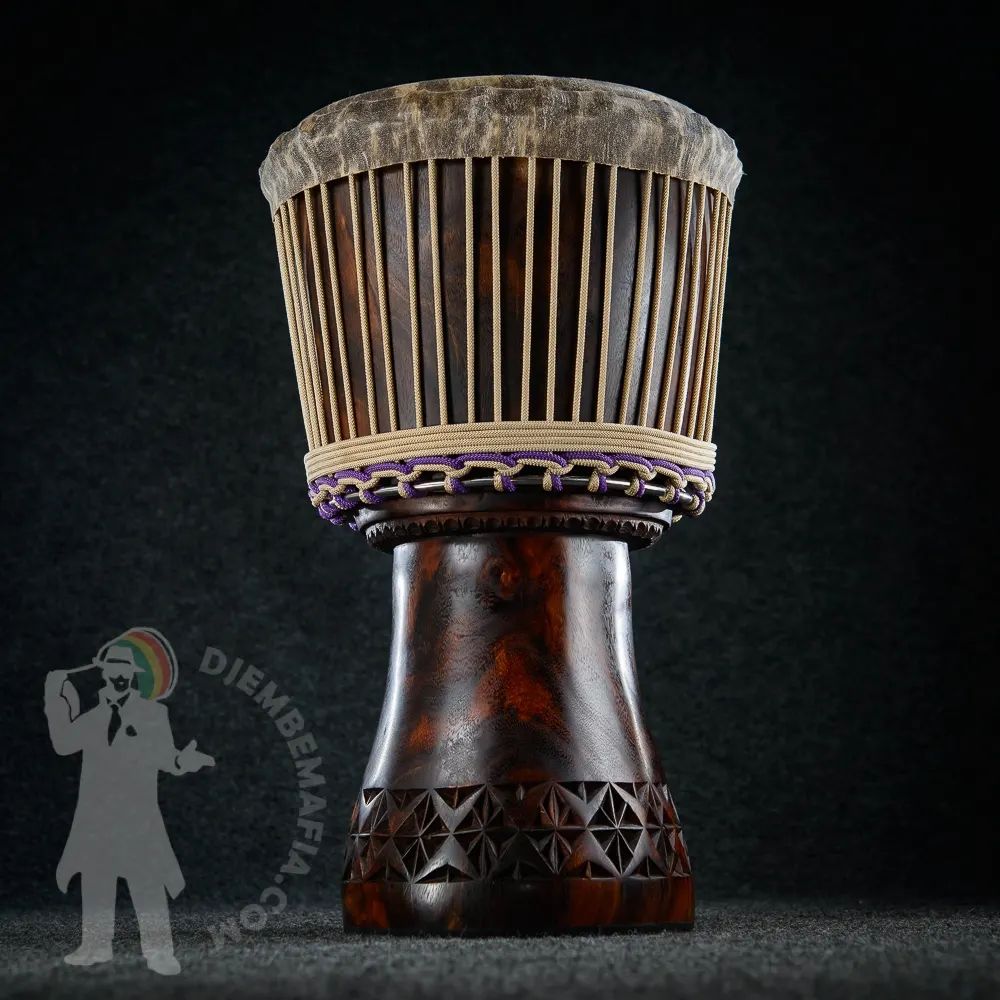
A beautiful cassia wood djembe from the workshop of the Djembe Mafia drum company and Tomáš Marek in the Czech Republic via Mali, West Africa!
If you’re in the market for a drum and reading this, or even if you already have one, it’s essential to think ahead and set aside a budget for protection. Invest in a good bag or case to keep your drum safe when it’s not in use. A drum hat is an additional top cover that slips over the head, is also a wise choice.
Whenever you are outside, as soon as you stop playing, take a break or leave the drum for any reason, cover it. I guarantee this will extend its life. It stops humidity and condensation you might not even realize is present from gathering on your drum head, It also stops people from placing items on it or playing it with out your permission especially if it say’s “hands off” on it like mine does!
Also, don’t forget to save around $150-$200 for a future rebuild or reskin. The higher cost is for shipping considerations. It all adds up! The ropes on your drum won’t last indefinitely either; they’re under a lot of tension and often need to be replaced when you re-head the drum. Often when a drum builder is re-heading a dry the rope will break if it’s old and they have to start the whole process again.
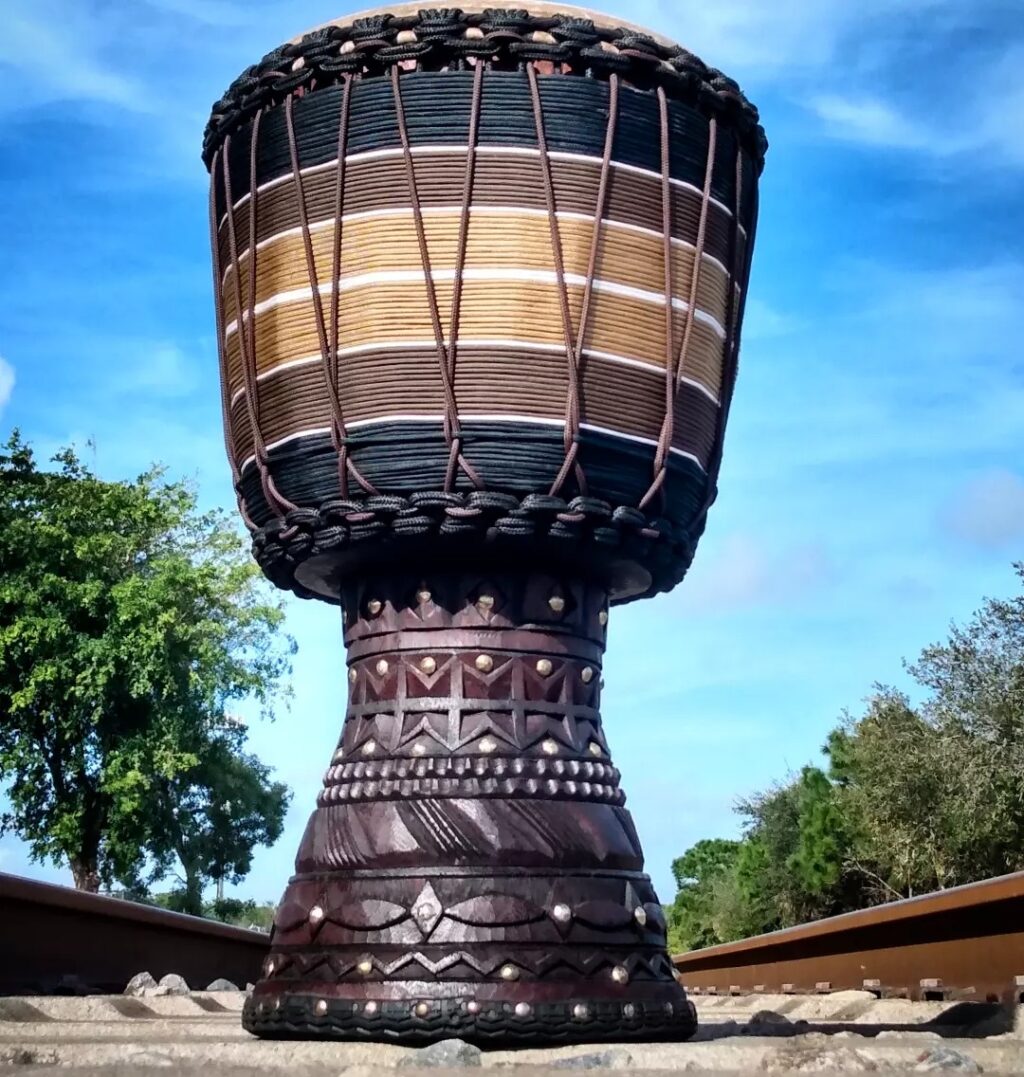
Djembe Life Drums by David Joseph Hernandez in South Florida. With decorative rope and tack work. David makes and repairs all kinds of drums!
This is simply part of being a djembe drummer, yet many people are caught off guard when their drum unexpectedly breaks and they find themselves facing an unplanned expense.
When you hear the cost of reheading, it’s easy to be shocked. Just remember that it requires significant time and a lot of skill, especially if you want it Donte right. And those professionals aren’t making much money off it, so asking for discounts isn’t a good idea. Watch a video of someone heading a djembe drum if you don’t believe me.
Educate yourself about the process, and be aware that you’ll likely need their help eventually—unless you decide to learn how to do it yourself, which I highly recommend as it creates a deeper connection to your drum and your drumming journey.
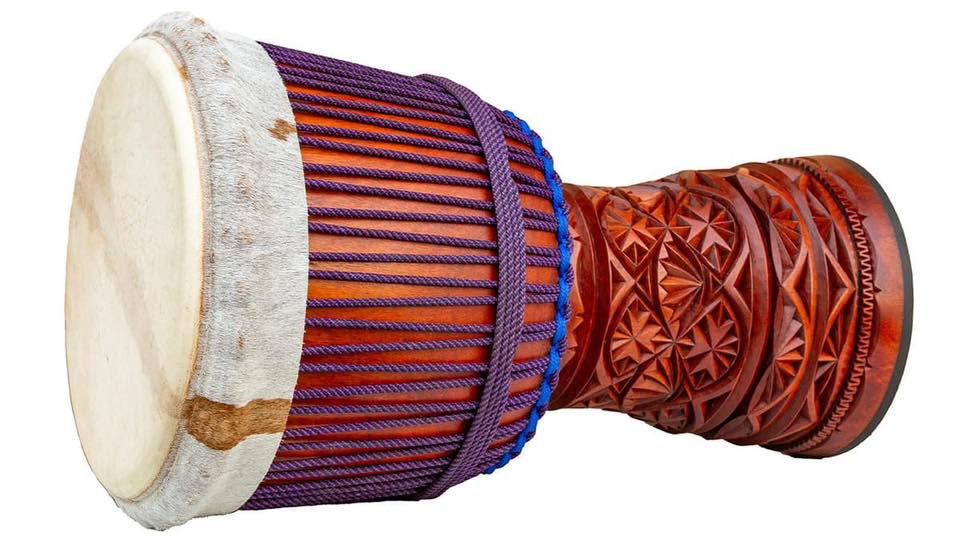
Koma Drum by Tom Kondas of Ohio. The shell was made by the great Mohamed Kaleb Sylla in Guinea West Africa. Tom mounted the skin in Ohio. As you can see Tom does a perfect job of making the flapper or “cuff” type skin mounting!
You can choose drum cases with a hard or soft top, but make sure they have some padding and are weatherproof. Now, how do you care for your drum to extend its lifespan and prevent it from popping? I like to tell people to treat their drum like a baby. Would you leave a baby in a hot car with the windows up? Of course not! If it’s too cold for a baby, then it’s too cold for your drum. The same goes for A/C vents or heaters, fans open windows and so forth and so on.
Many accidents that damage drums occur when people are moving them around indoors, especially if they’re on a shoulder. I learned this the hard way; after getting a new head on my drum, I carried it to my friend’s shop without a bag or hat. I was super careful, but just lightly banging it against the door while leaving left a gouge in the side. Thankfully, my friend was able to fix it with some glue and sanding, but the lesson is to be extremely careful when moving your drum, particularly inside.
Speaking of covering, all of my drum bags are labeled with “This is not a table.” The drum hats also have warnings. Despite that people at gatherings still ignore them, It’s crucial to keep people from placing items on your drum!
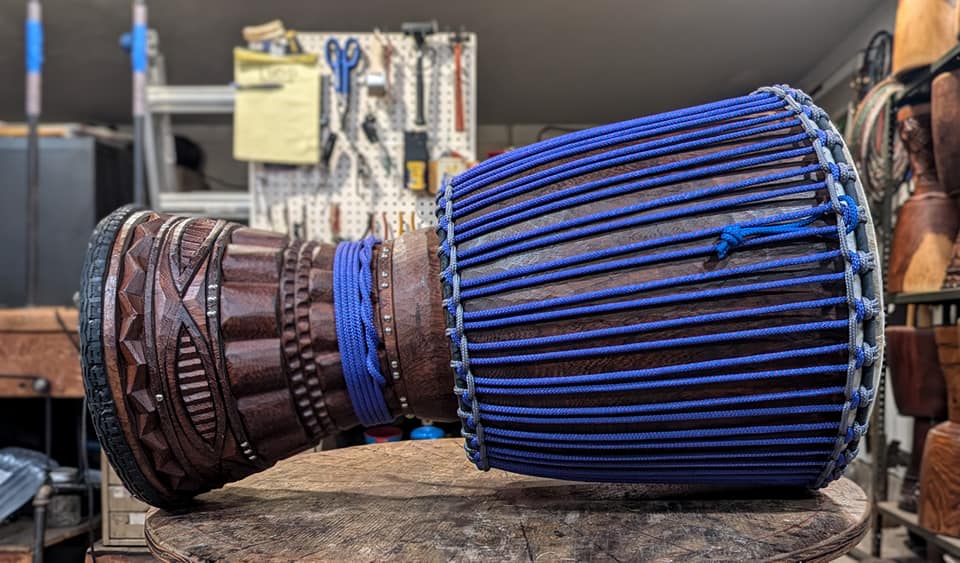
Lucid Drums also in Ohio. This is an Ivory Coast drum that AJ Agostino reworked. He does wood work, staining, hackwork and of course expert mounting of the head.
Many people mistakenly think you need to treat your goat skin djembe, but in my experience, that’s not true. You don’t need to add oils or anything to the skin; the natural oils from your hands are sufficient. In fact, adding oil can loosen the membrane and make it harder for your drum to stay in tune over time. For the best hand care, apply any oil or shea butter to your hands at least 20 minutes before you play; you don’t want to grease your hands and then immediately touch your drum!
The following people listed are people or companies that I have used regularly over the years, have relationships with and or can personally recommend to repair, re-head or even buy a drum, case or cover from. Of course there are many more, but I have not had personal experience with them, but I am sure they are great as well.
Top repair re-head people:
1. My number one go to guy is David Joseph Hernandez at Djembe Life Drums in South Florida. You can ship him your drum or bring it in person. He has a fast turn around and does amazing work especially with the sound, one of the best if not the best at least for me .
2. Lucid Drums in Ohio is one of the best, especially for finish work. He can take your djembe and really improve not only the sound but the looks as well.
3. Koma Drum also in Ohio! Tom Kondas is “state of the art”. I have had a few drums repaired by him and they came out amazing!
4. Drumskulls in California is one of the premier drum builders and fantastic for repairs as well. You get what you pay for and the aint cheap!
5. Timothy Dabrowski in Colorado. You may not have heard of him, he is a small time operation but he has built drums for me fro the ground up and also repaired several for me over the years and does great work!
6. Wula Drum does a nice flap over (cuff) and is in New York City. They have a very long history of great work. And I have used them a lot.
7. Wooden Roots in the UK does meticulous work, love their products and repair work seems to be top notch. I have not used them for repair but had their drums and my friends have as well.
8. Djembe Mafia. I have bought drums from him directly and also have and own many of their drums. They have not done repair work for me but I have bought finished drums from them that are some of the best out there! and he does repairs too. I believe Tomáš Marek is in the Czech Republic! If he was closer I would use him much more for sure.
9. Every Day Djembe in Poland. This guy is totally dedicated to the craft and art form, it’s his life! I am in constant contact with him and have seen almost all of his work in photos and sound demos too.
10. Bern Dez of Waraba Djembe in Canada. Seems to be doing great work. His sound demos are always great, I have known him personally for a while and seems to be of high integrity as well.

